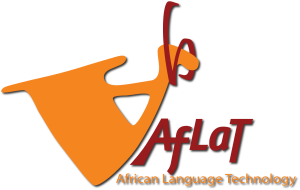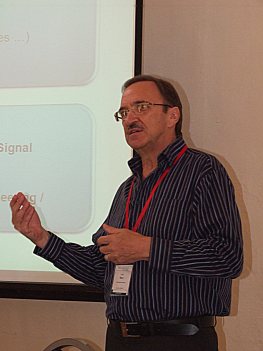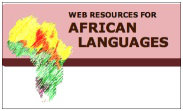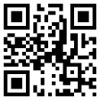language technology
Third Workshop on African Language Technology (AfLaT 2011) - Report
Submitted by Guy on Fri, 2011-12-09 08:43| AfLaT2011, the Third Workshop on African Language Technology, was organized as a breakout session of the AGIS11 conference (Action Week for Global Information Sharing) in Addis Ababa, Ethiopia. It marked the first time an AfLaT workshop took place on the African continent. AfLaT2011 featured ten presentations on a variety of topics and languages. We want to thank the presenters and participants for their contributions to the workshop, as well as the organizers of AGIS11 to allow us to collocate the AfLaT workshop with their wonderful conference. |  |
Second Workshop on African Language Technology (AfLaT 2010) - Report
Submitted by Guy on Thu, 2010-08-05 08:33On-line publications on language technology for African languages
Submitted by ahurskai on Fri, 2007-01-26 08:50Nordic Journal of African Studies (NJAS) is an access-free peer-reviewed journal publishing, inter alia, articles on language technology related to African languages. Since the web page contains hundreds of articles from various fields, relevant articles may be found using the page-internal search.
NJAS gets subsidy from the Nordic Committee for the Publication of Periodicals in the Humanities and Social Sciences (NOP-HS).
- Login to post comments
SALAMA - Swahili Language Manager
Submitted by ahurskai on Fri, 2007-01-26 07:44SALAMA is a rule-based system for managing a number of applications on Swahili. It includes a tokenizer, morphological analyzer, morphological disambiguator, semantic disambiguator, syntactic analyzer, and a text-based machine translation system from Swahili to English.
In morphology we have earlier used finite state methods with two-level description. Recently we have developed an alternative method using a combination of different rule types. We have used pattern matching rules for initial analysis (sufficient e.g. for a spell checker), and the accurate analysis with due ambiguity is produced with post-processing rules.
In disambiguation and syntactic mapping we have used a Constraint Grammar parser (CG2), licensed from Connexor. This parser is also used in isolating and handling multi-word expressions.
SALAMA includes also a number of rules for constituent re-ordering, and for transferring the grammatical and lexical information from Swahili into correct English language.
- Login to post comments
Special Interest Group: Language & Speech Technology Development
Submitted by Gilles-Maurice on Sat, 2006-12-16 21:06- Background
The Special Interest Group for Language and Speech Technology Development was founded in July 1999 after a pre-conference tutorial on African Language Engineering in the next Millennium. This tutorial which was partially sponsored by PanSALB, preceded the 10th Biennial International Conference of the African Language Association of Southern Africa (ALASA).
- Aims
- To introduce linguists working in the African languages to the challenges in the fast developing field of HLT;
- To act as catalyst for the development of language and speech technology in South Africa;
- To facilitate short term capacity building by identifying interested individuals and expertise in this field with a view to organising informal training sessions in HLT at different venues across the country;
- To facilitate long term capacity building through research into the restructuring of curricula at tertiary levels.
- Login to post comments




